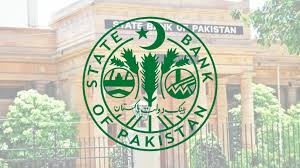Pakistan’s central bank cut its key discount rate to 8.5 percent from 9.5 percent on Saturday, in line with analyst expectations and citing lower inflationary pressure due to falling global oil prices.
Governor, State Bank of Pakistan, Ashraf Wathra said the new rate would be in place for two months until the next central bank meeting to discuss further policy.
“Keeping in view the declining inflation due to falling international oil prices, (the) central bank has decided to lower the discount rate,” Wathra said in televised remarks.
Business leaders had earlier called on the central bank to ease monetary policy to encourage private sector investment and accelerate economic growth.
The government of Prime Minister Nawaz Sharif, which came to power in 2013, is under pressure to do more to revive the economy, solve crippling power shortages and create favourable conditions for badly needed foreign investment.
The International Monetary Fund saved Pakistan from possible default in 2013 by agreeing to lend it $6.8 billion over three years.
The cash is being doled out in increments and could stop if Pakistan fails to institute changes such as cracking down on tax evasion and privatising loss-making state companies.
Falling oil prices have prompted a number of central banks to ease monetary policy. (Reuters)






